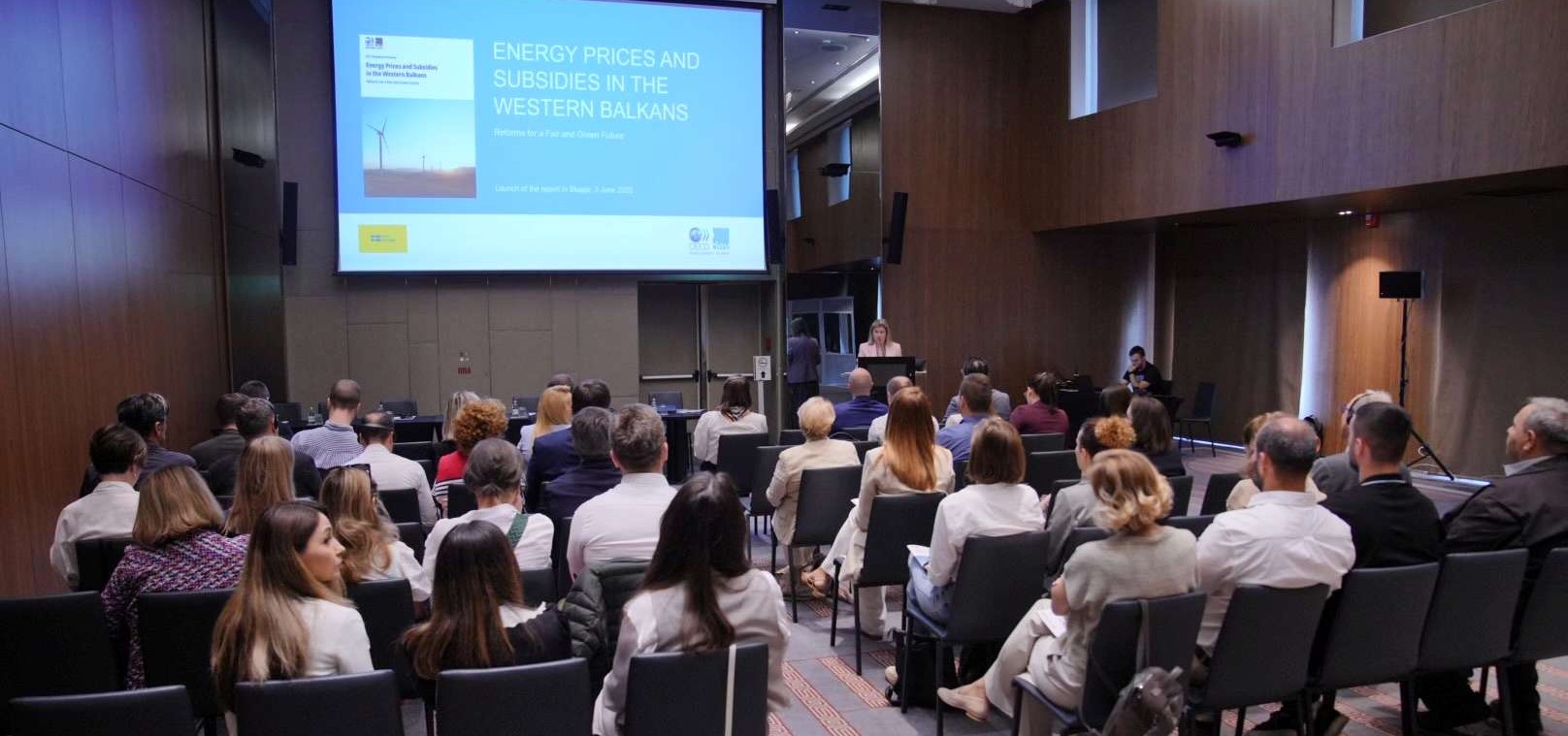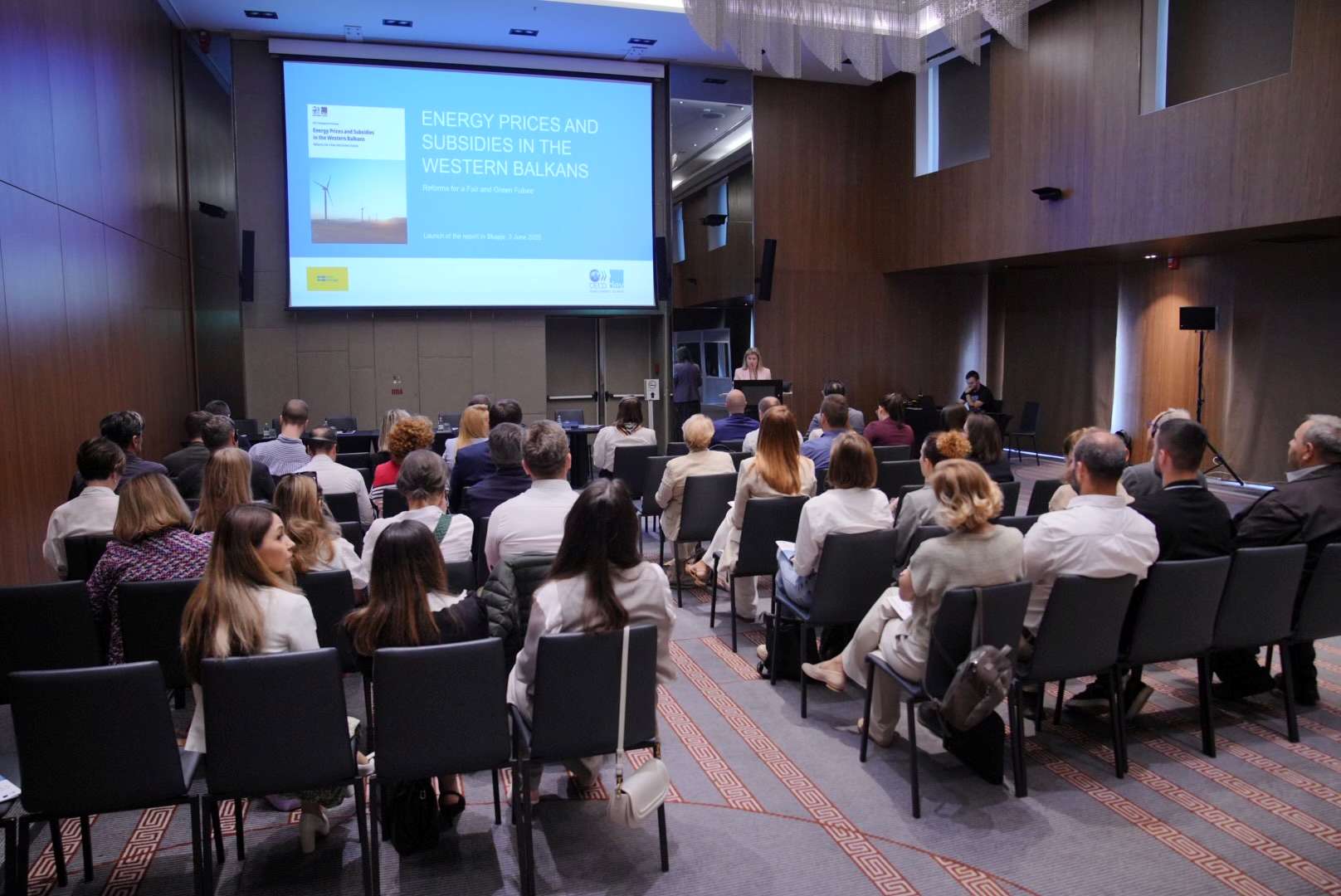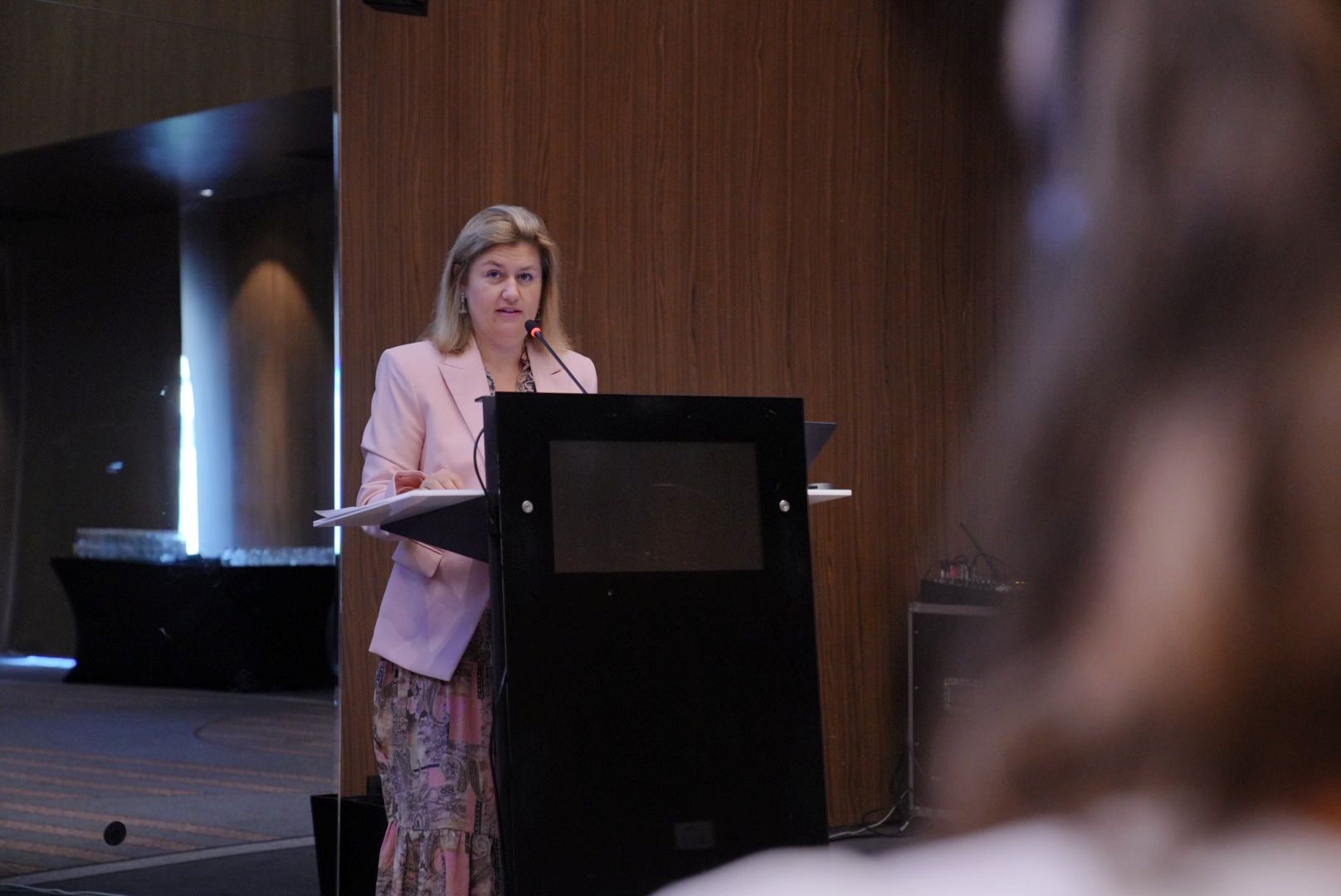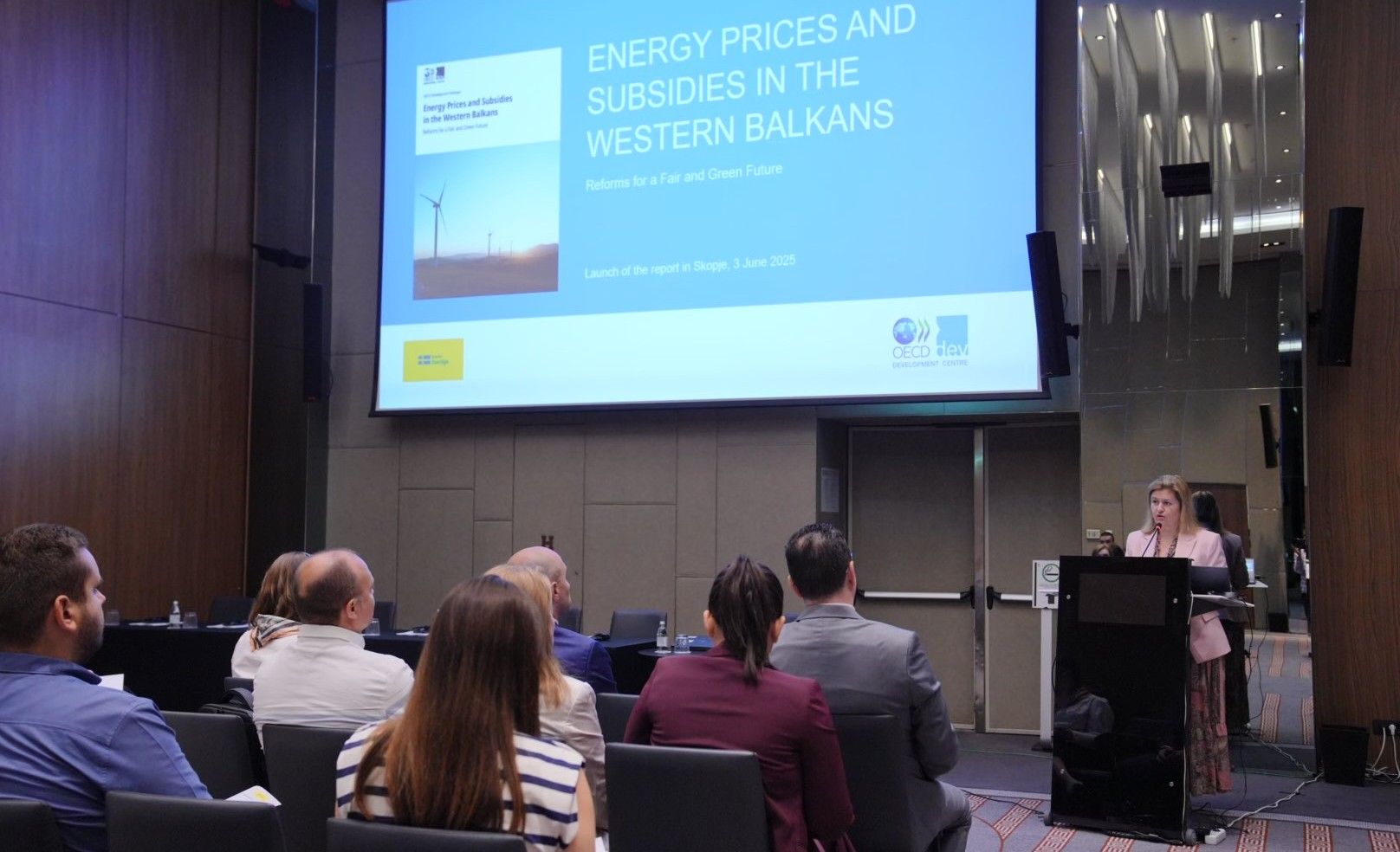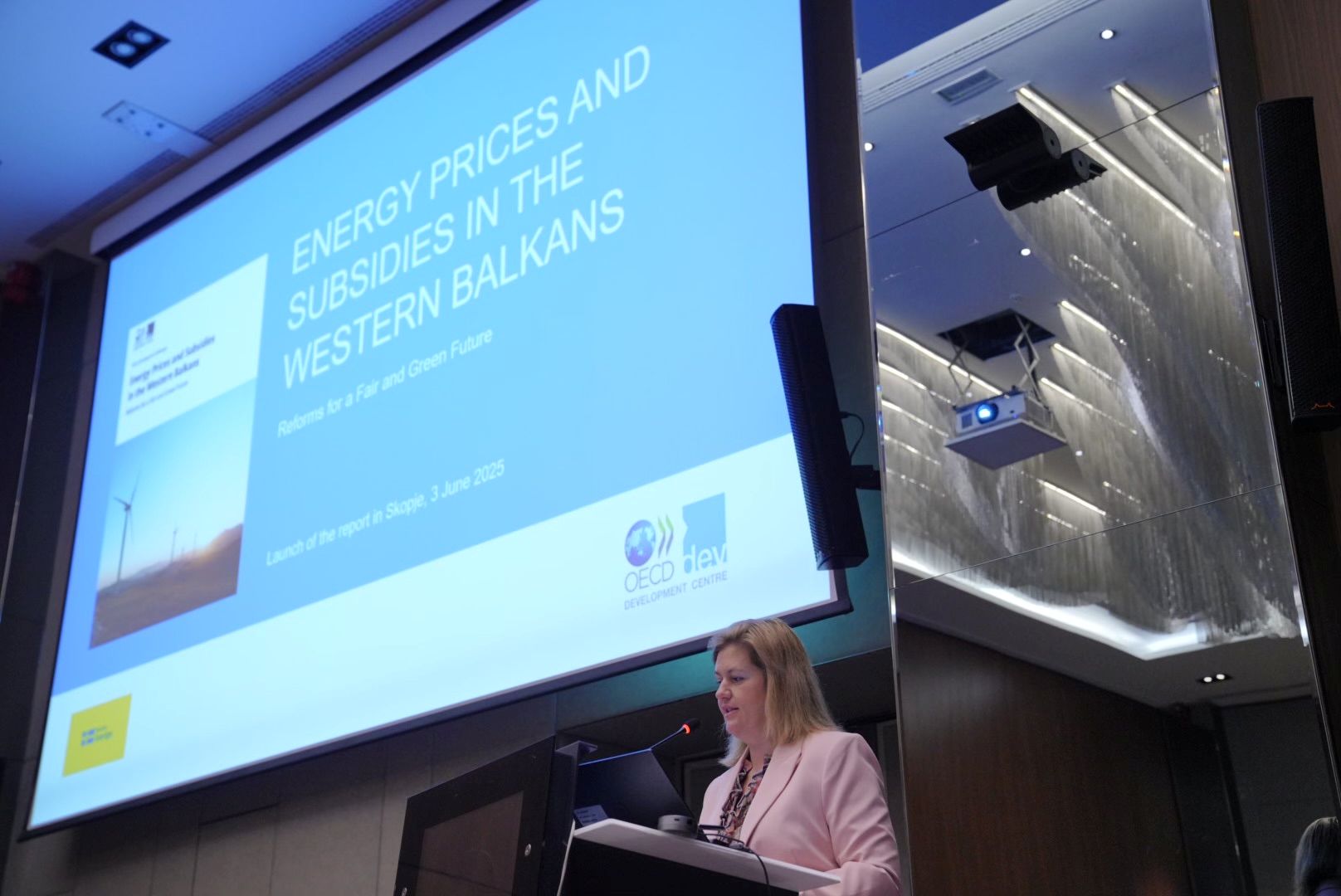Macedonia is ready for new energy model- fair, transparent and socially responsible. This was the message from today’s event promoting the OECD Development Centre's report: "Energy prices and subsidies in the Western Balkans: Reforms for a Fair and Green Future", whereas the minister of energy, mining and mineral resources, Sanja Bozinovska addressed.
The report, prepared with the support of international partners, provides a clear overview of the fiscal costs associated with energy subsidies, with a particular focus on the energy crisis period in 2021–2022.
According to the analysis, Macedonia allocates serious funds, direct support for the energy sector in the period 2018–2023. As Minister Bozinovska pointed out, most of these funds were intended to amortize price shocks and protect the living standard of citizens in times of global crises. However, as the report also indicates, the existing model of uniform subsidies often contributes to a larger transfer to households with higher consumption, rather than to vulnerable categories.
"With the new Energy Law, we have taken a key step forward - we are moving from universal support to targeted social protection, based on the real conditions of the household and not just on consumption," Bozinovska said, announcing that a methodology for measuring energy poverty is also being established in cooperation with the Ministry of Social Policy.
The Minister also highlighted the block tariff system that has been in place since July 2022, but pointed to its limitations: "Families with multiple members or people with chronic diseases, who have a real need for higher consumption are exposed to higher prices despite their social status."
In the panel discussion with key stakeholders from institutions, the civil society sector and international partners, the issues of market liberalization, financing the energy transition and the need for innovative solutions and fair distribution of public funds were raised.
The Energy Law also provides new mechanisms to protect vulnerable consumers – such as direct financial support, a ban on disconnection from the grid in winter conditions and energy efficiency subsidies. In addition, it introduces the possibility for every consumer to change their electricity supplier within 48 hours, free of charge, which opens the market to fair competition.
"This law is not just a technical regulation – it is a reflection of our determination to build an energy system that will be economically sustainable, socially just and environmentally responsible. Our vision is clear - Macedonia with solar panels on roofs, electric vehicles on the roads and stable electricity bills" Bozinovska stated, emphasizing that reports like the one from the OECD are a tool for better policies, with a clear goal - a fair transition in which no one will be left behind.
The event united policymakers, representatives of the civil sector and international organizations in a common commitment to a fair and green energy future for Macedonia.
With regards,
Ministry of Energy, Mining and Mineral Resources


